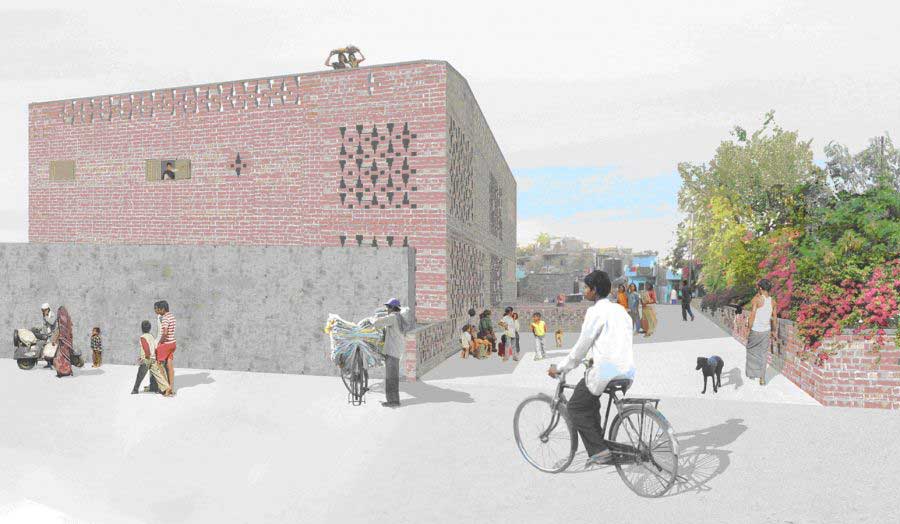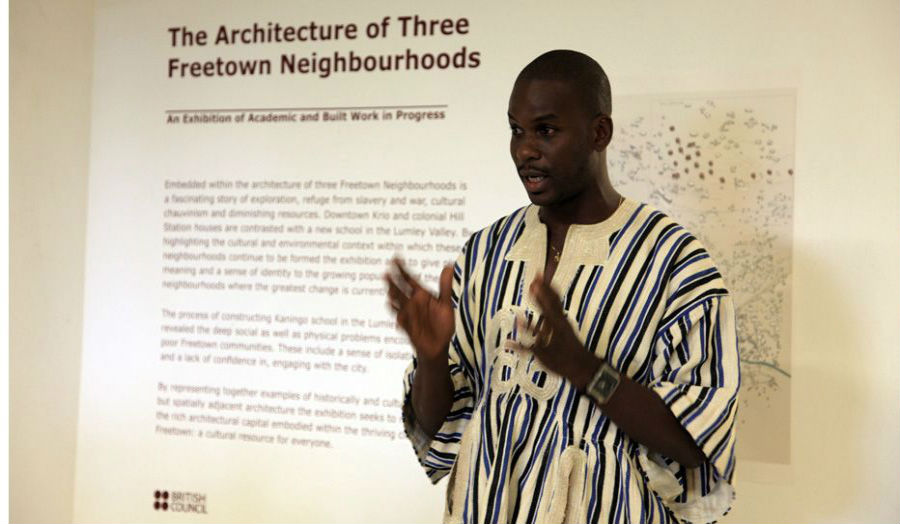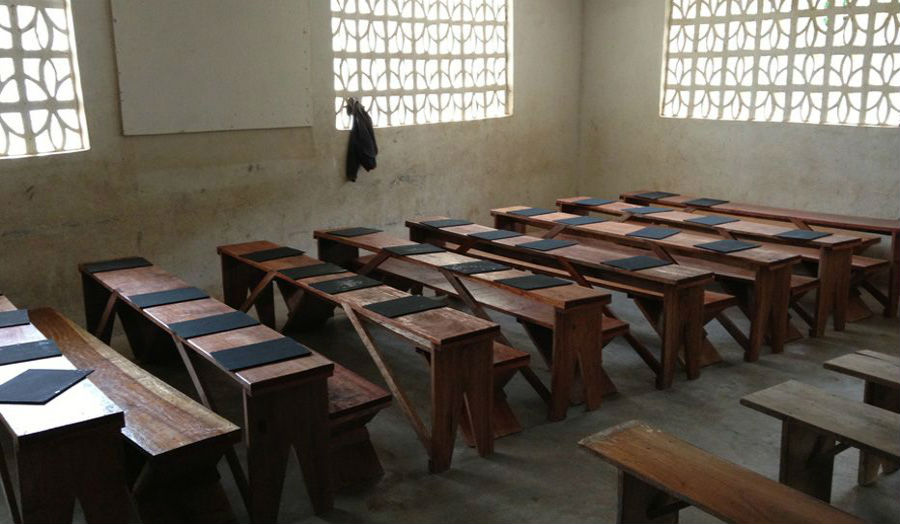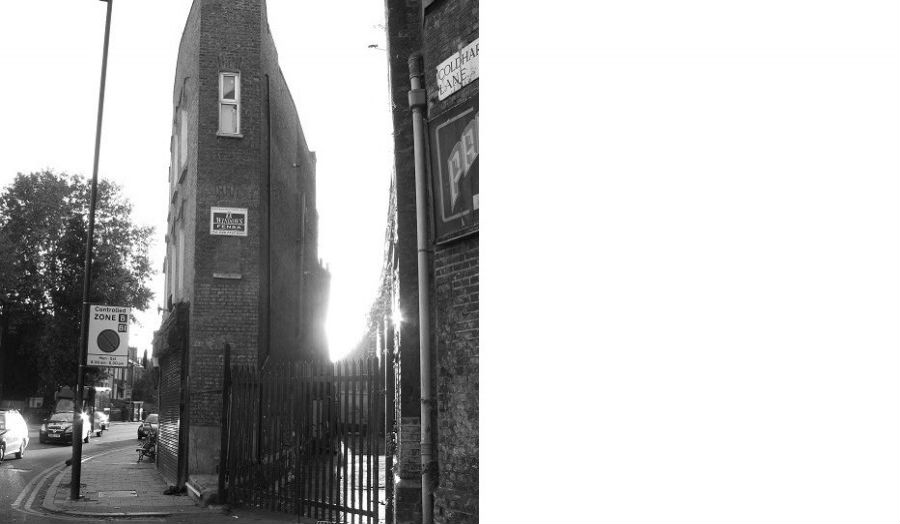Professor Maurice Mitchell teaches, researches and directs live projects for the School of Art, Architecture and Design at London Met, where he runs postgraduate Unit 6.
He has also taught at the Architectural Association, Oxford Brookes University and the Development Planning Unit, University College London.

Professor Maurice Mitchell
Professor Mitchell is a registered Architect and a Senior Fellow of the Higher Education Academy. Educated at the Architectural Association, his early career included extended periods of work in the shanty towns of Ghana to establish the Tema Housing Cooperative with the Department of Housing and Planning Research at Kumasi University and as Regional Building Materials Advisor to the Southern Regional Government of Sudan.
His first book Culture, Cash and Housing (1992) explores the lessons learned from the experience of Voluntary Service Overseas in the field of building for development. He has been involved with and published on typhoon resistant construction in Vietnam in cooperation with NGO Development Workshop – France, of which he is a board member.
Prof. Mitchell's area of interest lies in the narrative interplay between technical and everyday cultural factors in the production and sustainability of the built environment, particularly in situations of rapid change and scarce resources where new identities are forged in the process of remaking.
He is Director of the teaching and research area – Architecture of Rapid Change and Scarce Resources.
Ideas relating the building process and appropriate building technologies to architectural education are explored in his second book The Lemonade Stand: Exploring the unfamiliar by building large scale models (1998) which highlights the importance of the culture of making within architectural education by drawing on the exploratory work produced during hands on courses which he has run for 33 years at the Centre for Alternative Technology, Wales.
His diploma studio undertakes an annual field trip in which students engage proactively with a local situation, usually in a transitional urban settlement, devising imaginative responses to specific cultural and technical issues. Work in Kosovo is discussed in Rebuilding Community in Kosovo (2003). From 2002 to 2013 the studio’s focus centred on design within marginal settlements in India (Gujarat 2002, Meerut 2003, Delhi 2004-5 and 2007-9, Agra 2006/10-13).
He is author of Learning from Delhi, Dispersed Initiatives in Changing Urban Landscapes (2010), which focuses on the work of the studio in India, which won the Urban Design Group prize 2012.
Research since 2008 around the construction of a small peri-urban primary school in Freetown, Sierra Leone has resulted in two exhibitions and publication with the British Council. "The Architecture of 3 Freetown Neighbourhoods. Documenting changing city topographies 2008-2013" (2013) which was short listed for the RIBA President’s Awards for outstanding university-located research 2014. A paper, "The Forest and the City", reviewing the role of memory in urban place making in the Freetown peninsular was published in 2018.
From 2014-16 work focused on the Kathmandu Valley, Nepal, post-earthquake as described in "The River and the City: Urban agriculture in Kathmandu as a catalyst for the civic inclusion of migrants and the making of a greener city" (2019). From 2017 to 2019 the refugee crisis in Europe focused Unit 6 on situations in Athens, Greece and Calabria, Italy. He is co-author with Dr Bo Tang of their book Loose Fit City: The Contribution of Bottom Up Architecture to Urban Design and Planning (2018).
Main authored books
- 2018, with Bo Tang. Loose Fit City: The Contribution of Bottom Up Architecture to Urban Design and Planning. Routledge, New York.
- 2013, The Architecture of 3 Freetown Neighbourhoods. Documenting changing city topographies 2008-2013 (2013). ASD Projects, London Metropolitan University.
- 2010, with Bo Tang and Shamoon Patwari. Learning from Delhi: Dispersed Initiatives in Changing Urban Landscapes. Ashgate.
- 2003, Rebuilding Community in Kosovo, Centre for Alternative Technology Press.
- 1998, The Lemonade Stand: Exploring the unfamiliar by building large scale models, Centre for Alternative Technology Press.
- 1992, with A. Bevan. Culture, Cash and Housing: Community and Tradition in Low- Income Building, Intermediate Technology Press.
Chapters in books
- 2005, “The school’s we’d like: young people’s participation in architecture with Ben Koralek” in Dudek, M. (ed.) Children’s Spaces Elsevier/Architectural Press.
- 1997, “Earths and Clays and Bricks and Tiles” in Oliver, P. (ed.) The Encyclopedia of Vernacular Architecture of the World, Blackwells.
- 1995, “Educating through Building” in Hamdi, N. (ed.) Educating for Real: The Training of Professionals for Development Work, Intermediate Technology Press.
Conference Papers
- 2015 with Bo Tang. “Live Projects as Research: Tools of Practice Research in Making Architecture.” Paper given at Aarhus School of Architecture, Denmark.
- 2012, “Architect as Detective, Narrator and Craftsperson.” Keynote address given at Cornell University Symposum: Design tactics and the Informalized City
- 2010, with Toby Pear, “Live Projects and their Role in Studio Teaching.” Paper delivered to SCHOSA conference to be published in book form as conference papers.
Exhibitions
- 2013, “The Architecture of 3 Freetown Neighbourhoods at British Council” Freetown.
- 2012, “The Architecture of 3 Freetown Neighbourhoods, British Council”, London. Part of International Architecture and Design Showcase 2012.
- 2009, “Learning from Delhi at School of Planning and Architecture (SPA)”, Delhi. Exhibition of student and live project work, sponsored by HTA architects.
Papers in refereed journals
- 2020, “Hill Station Houses in Freetown”. Sierra Leone Chapter: Sub-Saharan Africa Architectural Guide, Dom Publishers.
- 2019, with Roca Iglesias, R., “Urban agriculture on the banks of Kathmandu’s river Bagmati as a catalyst for the civic inclusion of sukumbasi migrants and the making of a greener city.” Frontiers of Architectural Research.
- 2018, “The forest and the city: interpretative mapping as an aid to urban practice in sub-Saharan Africa”. Journal of Urban Design. Vol. 23, issue 4. Pages 558-580.
- 2016 with Tang, B., “Live projects: innovating in the present”, Brookes eJournal of
- Learning and Teaching Vol 8, Issues 1 & 2, April 2016.
- 2015 with Tang, B., “Live projects as research: tools of practice research in making
- architecture”, Making Research | Researching Making Creative Practice Conference 10 – 12 September, Arkitektskolen Aarhus, pp.302–315.
- 2008, “Dispersed Initiatives in Changing Urban Landscapes”. Editor and contributor to single issue edition of Open House International (Vol 33 no 2): Architecture of Rapid Change and Scarce Resources.
- 2008, “How do we integrate sustainability and the best of the vernacular into the architecture of Indian urban settlements now”. In Blueprint 01. Paper in annual magazine
- of the students Society of Architecture Jadavpur University, Kolkata, India.
- 1999, “Material Culture: developing a new vocabulary of typhoon resistant construction for Vietnamese houses, schools and clinics”, Open House International, Vol.24 no 4.
- 1998, “Sustainable Village Health Buildings”, Open House International, Vol. 23 No 4.
- 1995, “Health Buildings in Uganda and Sierra Leone”, Development in Practice,Vol 5. No 4.
- 2018, Shortlisted, Kathmandu Project - Water Research Prize, World Architecture Festival.
- 2014, Shortlisted, The Architecture of Three Freetown Neighbourhoods, Outstanding University-Led Research – RIBA President’s Medal for Research, UK.
- 2012, Prize for Best Publisher, Learning from Delhi, Urban Design Awards, UK.
- 2012, approximately £10,000 from the British Council to help fund two exhibitions 2011, Mention as Good Practice, for DEWATS project, Agra - UN-Habitat / World Bank.
- 2010, Shortlisted, DEWATS project, Agra - National Urban Water Awards, India.
- 2010, Shortlisted, Baban Seth Community Classroom Project - AJ Small Projects Award, UK.
- 2007 to date: approximately £100,000 per year from the Water Trust
Professional Experience Outside the University
- 2008 to date –Director of the Water Trust Charity
- 2010 to date – Board member Development Workshop, France
- 1994 - 2013 – Partner, Dwyer Mitchell Architects, London
- 1979 - 1994 – Principal, Maurice Mitchell Associates, London
- 1976 - 1979 – Building Materials Advisor, to the Ministry of Regional Development, Juba, Southern Sudan
- 1974 - 1976 – Architect, Solon Housing Association, London
- 1970 - 1974 – Architect for Tema Pilot Cooperative Housing Scheme, Department of Housing and Planning Research, University of Science and Technology, Kumasi, Ghana



